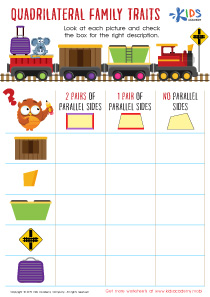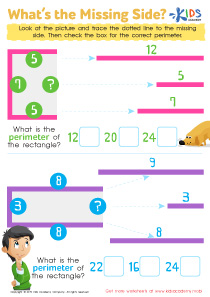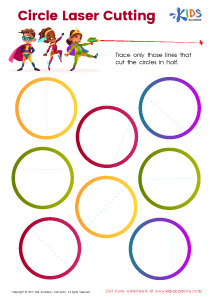Shape Recognition Normal Tracing Shapes Worksheets for Ages 4-7
6 filtered results
-
From - To
Enhance your child's learning journey with our "Shape Recognition Normal Tracing Shapes Worksheets" designed specifically for ages 4-7. These engaging worksheets help young learners develop essential shape recognition skills while improving their fine motor control through tracing activities. Each worksheet features a variety of shapes, from circles to triangles, allowing children to explore and identify their unique properties. Our fun and interactive designs encourage creativity and make learning enjoyable. Perfect for both classroom and at-home practice, these worksheets are an invaluable resource for teachers and parents alike, fostering early math skills and building confidence in young learners. Start shaping your child’s future today!
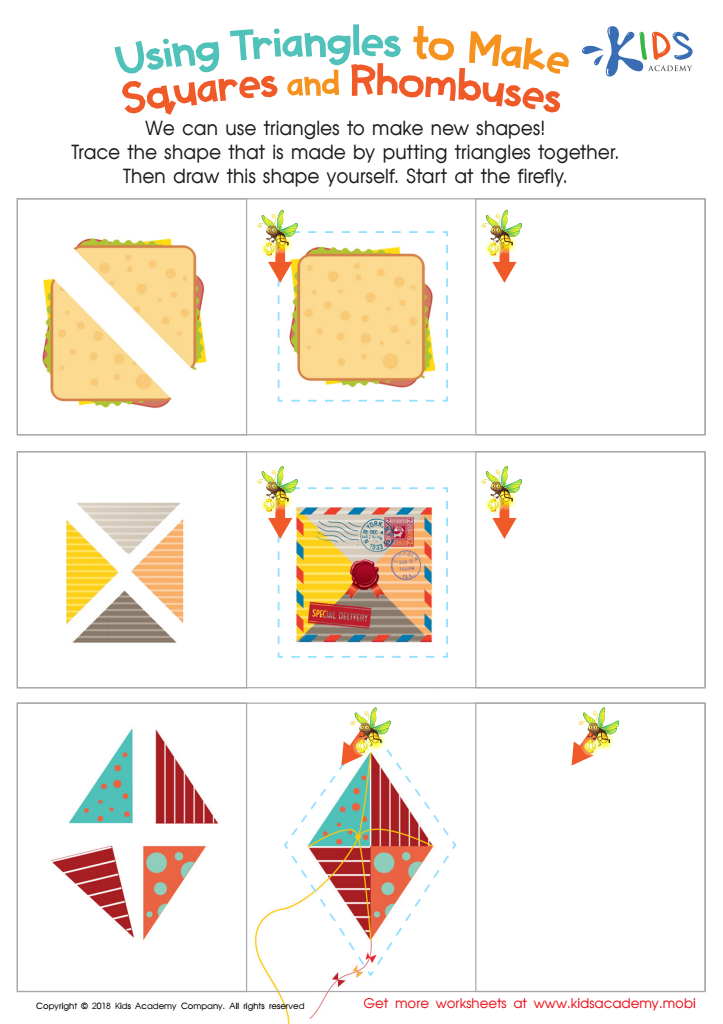

Using Triangles to Make Squares and Rhombuses Worksheet
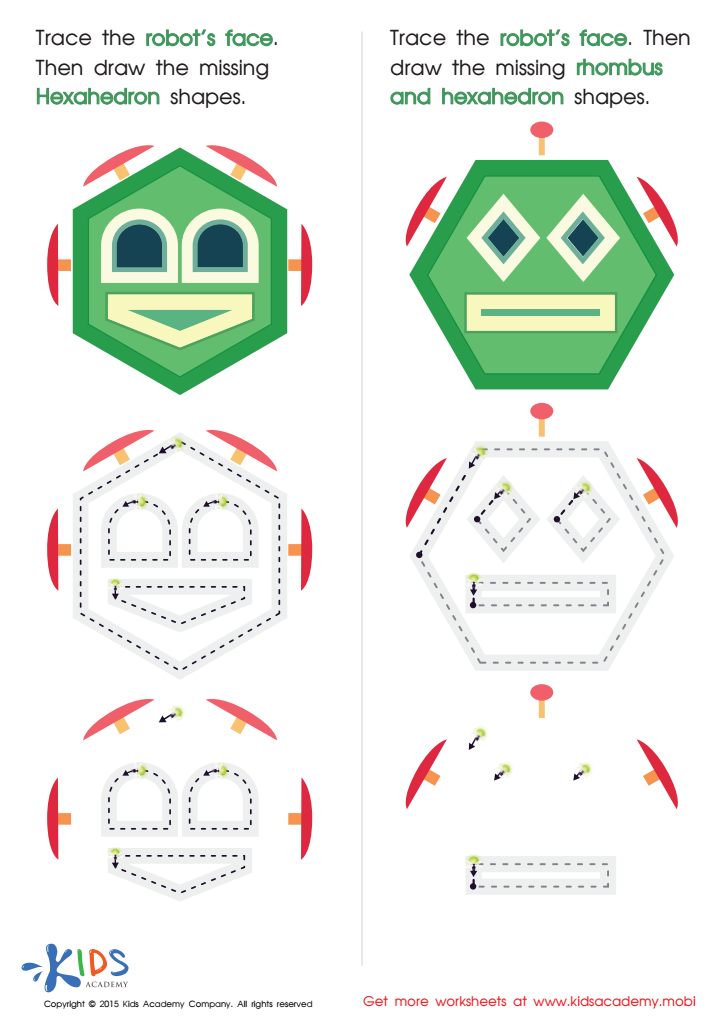

Practice Drawing Hexahedrons And a Rhombus Worksheet
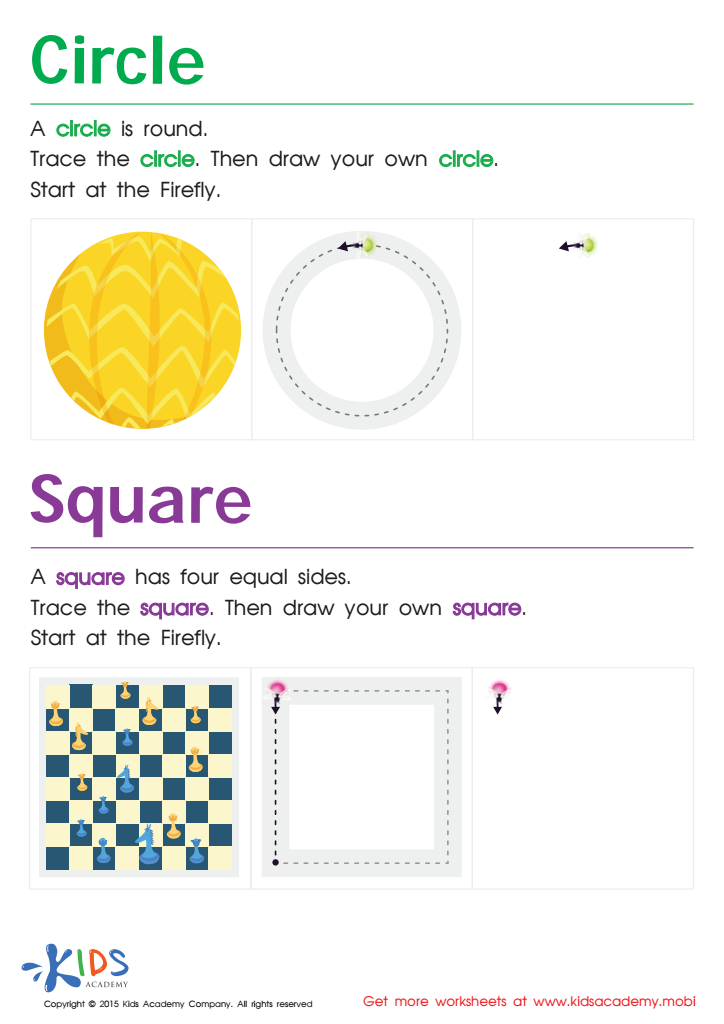

Trace And Draw a Circle And a Square Worksheet
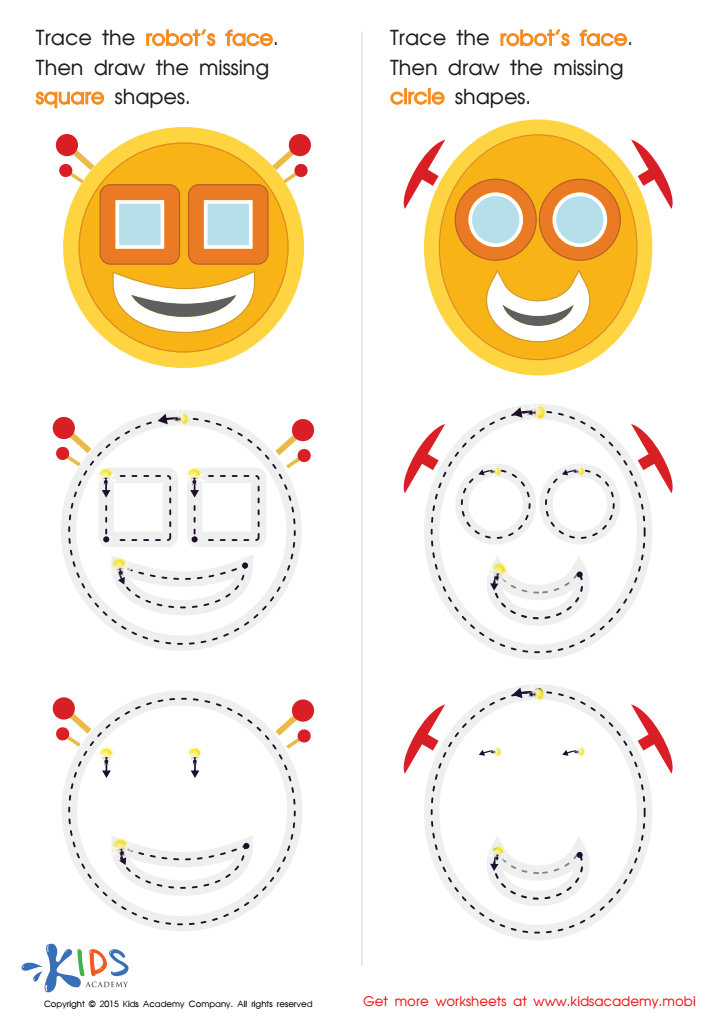

Practicing to Draw Circles And Squares Printable
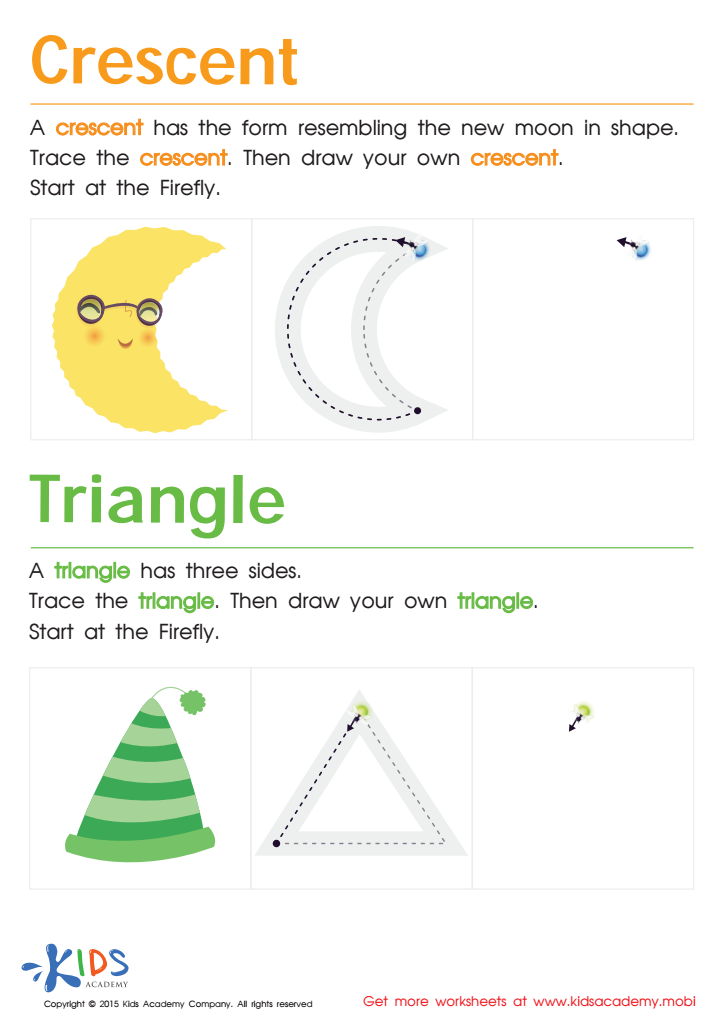

Learning to Draw Crescents And Triangles Worksheet
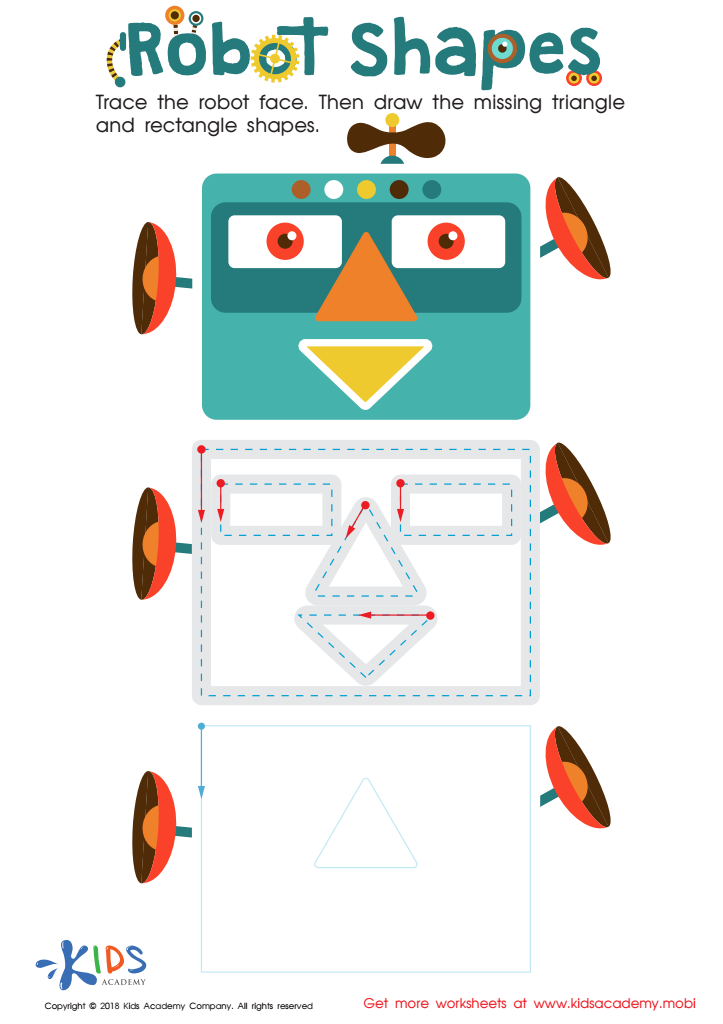

Robot Shapes Worksheet
Shape recognition and tracing are vital educational activities for children aged 4-7, offering numerous benefits that parents and teachers should prioritize. At this developmental stage, children are naturally curious and begin to explore the world around them. Recognizing shapes lays the foundation for mathematical understanding, as it enhances their ability to identify geometric concepts later in life. Shape recognition fosters critical thinking skills; children learn to categorize and differentiate between objects.
Normal tracing shapes not only reinforces recognition but also improves fine motor skills, hand-eye coordination, and control, all essential skills for writing. As children trace various shapes, they gain a sense of accomplishment, boosting their confidence and self-esteem. Additionally, these activities encourage focus and concentration, promoting mindfulness and patience in completing tasks.
Incorporating shape recognition and tracing into daily routines can lead to meaningful interactions between children and adults. Engaging in fun, hands-on learning activities creates opportunities for essential bonding and can ignite discussions about the world around them. By actively participating in a child’s shape recognition and tracing journey, parents and teachers play a crucial role in their overall cognitive and developmental growth, setting the stage for future learning success.
 Assign to My Students
Assign to My Students









